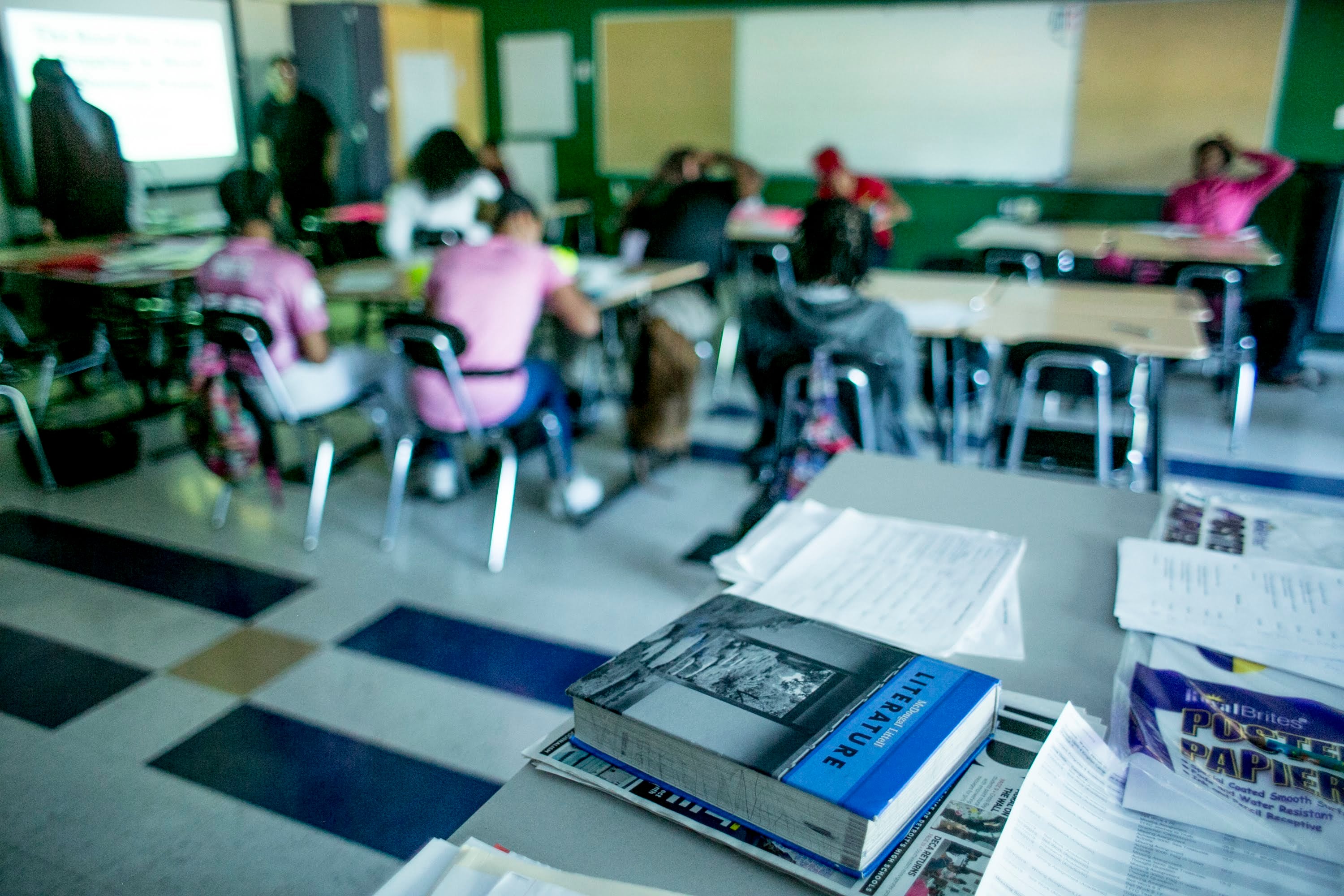Parents and students gave emotional testimony on Tuesday about struggling to read in a hyper-literate society, kicking off a renewed effort by Michigan lawmakers to pass a package of bills designed to help struggling young readers.
The bills require school districts to screen students for dyslexia characteristics and increase teacher training requirements so teachers are better able to identify and address reading problems. Dyslexia is a hereditary disorder that makes it difficult for people to do basic reading tasks such as sounding out written words. Researchers estimate that between 5% and 20% of all people have dyslexia.
The proposed laws have drawn unusually broad support from lawmakers and experts across Michigan’s political and geographical divides, who say the state has not done enough to identify and support struggling readers. Until last year, dyslexia was not mentioned in state law.
But the bills’ fate is not guaranteed. The same legislation was introduced last year but didn’t go to a vote. And some literacy experts and school officials urged caution about the bills, calling them overly prescriptive and too similar to policies that have proved ineffective in other states.
To some advocates, bipartisan support for the bills signals a promising opportunity to address dyslexia in Michigan.
“The hearings were dynamite,” said Sen. Jeff Irwin, a Democrat and co-sponsor of the bill package. “I feel really good about our trajectory in the legislature.” He added that similar bills were introduced late in the legislative session last year and said there wasn’t enough time for them to be seriously considered.
Supporters of the bills say they will help schools identify students with reading issues early in their school careers when teachers can do the most to help them. Several speakers during the hearing Tuesday said they have dyslexia themselves, or that their children do.
“I never wanted to read as far back as first grade,” said Anri Haglund, a seventh grader who said he has dyslexia. “I wasn’t able to read long words. I didn’t know the sound of ‘dge,’ ‘tch,’ and ‘tion.’ I can read harder things now and understand them. I should have learned these things sooner.”
Reading difficulties can also emerge for other reasons, including what some researchers, with tongue in cheek, call “dysteachia,” or a failure of classroom instruction that can leave students without the building blocks of reading, especially if they aren’t getting help with literacy at home.
Whether the literacy roadblock is dyslexia, poor instruction, or something else, research points to many of the same solutions: high-quality, personalized instruction.
An effort to improve literacy in Michigan’s youngest students got underway in recent years. A 2016 law known as “read by grade three” sought to improve reading scores in Michigan by expanding the state’s corps of coaches who will work with teachers to improve literacy instruction. It also pushed schools to emphasize literacy instruction by requiring that third graders be held back if they fell too far behind in reading.
Research suggests that the initiative has begun to have modest positive effects on reading scores.
The new bills aim to go further.
Well-to-do parents whose children struggle to read are already paying for specialized tutoring, and the proposed legislation would make those services available to more children, said Nikolai Vitti, superintendent of the Detroit Public Schools Community District. Vitti has dyslexia, as do two of his children, experiences that he says fuel his work in education.
“This is an equity issue,” he said. “What families pay for out of pocket — mainly middle class and upper middle class parents — should be happening for every child within the traditional public schools.”
Existing processes for identifying Michigan students who need extra help with reading, such as the special education process, aren’t cutting it, he added.
“We cannot pretend that this is happening,” he said of students receiving adequate support with reading. “It’s not.”
Some experts and school officials worry that the bills, which narrowly define effective reading instruction, could have unintended consequences.
Rachael Gabriel, an education professor at the University of Connecticut, said similar legislation in other states, including Connecticut and Tennessee, has been less effective than advocates hoped. Tests that screen for signs of dyslexia aren’t reliable, she said, and can over- or under-identify students.
Gabriel says schools need to ensure that staff with literacy expertise have the time they need to comb through the test results and determine which students need extra support. The proposed laws don’t include funding for more reading specialists.
Legislation in Texas and Arkansas that relied on screeners to identify students with dyslexia didn’t lead to more students being identified, according to one study Gabriel cited. She also warned that some resource-strapped schools would struggle to implement the proposed law, pointing to a study showing that in states that implemented screening requirements, students of color were less likely to be identified with reading challenges.
“We should ask what would let existing systems work, rather lay on top of them with more specifications,” she said.
Some school officials are wary of the proposals because they attempt to enshrine a particular approach to literacy in law.
Existing special education systems are able to identify students who need extra help learning to read, said Justin Michalak assistant superintendent for special education and student services at Macomb Intermediate School District, a countywide education agency in suburban Detroit.
“It’s not a problem to try to work to identify dyslexia. The issue is writing very specific interventions into law,” said Peter Spadafore, spokesman for the Michigan Association of Superintendents and Administrators. “We should leave flexibility to the specialists.”
Some specialists support the bills. David Winters, head of the special education department at Eastern Michigan University, said extra screening for dyslexia would ensure that more struggling readers would get help early, easing pressure on the already overtaxed special education system.
He also spoke in favor of a component of the law that would require teacher education programs to put a heightened focus on literacy instruction and dyslexia.
“While some Michigan teacher education programs may briefly mention dyslexia, | have personally found few teachers who have received sufficient accurate knowledge without personally taking on additional professional development,” he said.
Several of the state’s largest teacher preparation programs previously told Chalkbeat that they already cover dyslexia and the science of reading.
Bills SB 380, SB 381, SB 382, and SB 383 haven’t yet been approved by the Senate Education and Career Readiness Committee. They would also have to be approved by the House and Gov. Gretchen Whitmer.
The office of Sen. Lana Theis, chairwoman of the education committee and a cosponsor of the bills, did not immediately return a request for comment on when the next vote is expected.






